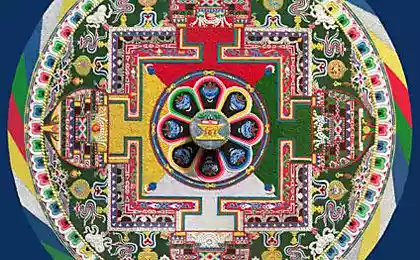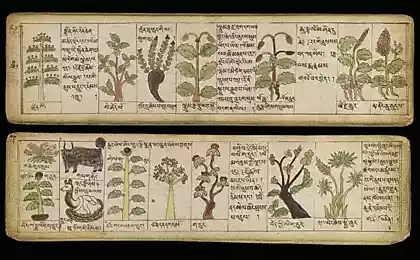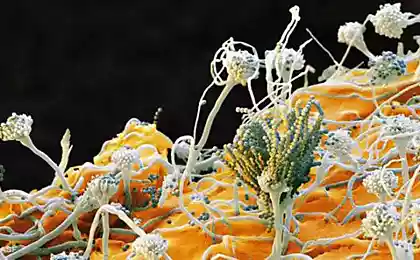390
Scientists Tibetans have a special gene
Scientists have found that Tibetans were able to adapt to great heights thanks to a special gene they received from a long-extinct species of man.
According to the researchers, this is the first reported case of a gene from another human species has helped modern humans to adapt to environmental conditions. Scientists discovered that the gene came from Denisovans, an ancient species of human that became extinct 40,000-50,000 years ago, around the same time as the more well-known Neanderthals. An unusual variant of a gene that helps to live at high altitude, spread among the Tibetans, after they came to a plateau several thousand years ago.

Biology Professor Rasmus Nielsen (University of California) said: "we Have very clear evidence that this version of the gene came from Denisovans. This shows very clearly and directly that humans evolved and adapted to new conditions, received their genes from other species." Dr. Nielsen is confident: "We found part of the EPAS1 gene in Tibetans is almost identical to the gene from Denisovans and very different from all other people. We can do statistical analysis to show that it is from the Denisovans. There is no other way to explain the data".
Nielsen sketched out a possible scenario leading to this result: the first humans coming out of Africa interbred with Denisovan populations in Eurasia as they passed through this area in China, and their descendants still retain a small percentage, maybe 0.1 percent Denisovan DNA. A previous study on the comparison of the genomes of 50 Tibetans and 40 Chinese shows that ethnic Tibetans split from the Han less than 3,000 years ago, and since then has developed a unique ability to live at high altitudes with low oxygen levels.
Source: nauka24news.ru/
According to the researchers, this is the first reported case of a gene from another human species has helped modern humans to adapt to environmental conditions. Scientists discovered that the gene came from Denisovans, an ancient species of human that became extinct 40,000-50,000 years ago, around the same time as the more well-known Neanderthals. An unusual variant of a gene that helps to live at high altitude, spread among the Tibetans, after they came to a plateau several thousand years ago.

Biology Professor Rasmus Nielsen (University of California) said: "we Have very clear evidence that this version of the gene came from Denisovans. This shows very clearly and directly that humans evolved and adapted to new conditions, received their genes from other species." Dr. Nielsen is confident: "We found part of the EPAS1 gene in Tibetans is almost identical to the gene from Denisovans and very different from all other people. We can do statistical analysis to show that it is from the Denisovans. There is no other way to explain the data".
Nielsen sketched out a possible scenario leading to this result: the first humans coming out of Africa interbred with Denisovan populations in Eurasia as they passed through this area in China, and their descendants still retain a small percentage, maybe 0.1 percent Denisovan DNA. A previous study on the comparison of the genomes of 50 Tibetans and 40 Chinese shows that ethnic Tibetans split from the Han less than 3,000 years ago, and since then has developed a unique ability to live at high altitudes with low oxygen levels.
Source: nauka24news.ru/
The ants will help scientists in the creation of antibiotics
Delicious diet from Meriem Uzerli — unusual and beautiful Oriental dishes























